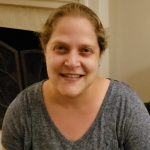
To engage health equity, we each must explore and do the work for ourselves. We must acknowledge who we are and how our experiences and work impact our actions across home and work and community. I am a White, Jewish cisgender woman who grew up in an affluent suburb of Chicago. I have a doctoral degree in public health. I have lived and worked in many communities different from the one I grew up in. I have traveled abroad. I am continually humbled by what I don’t know, and what being open can bring. I am married to a White, Jewish, Latinx immigrant cisgender man. We are raising our children in a bicultural, bilingual, Jewish home where we frequently discuss challenging issues about the country and world we live in. We simultaneously laugh, get frustrated, and enjoy family and good food. We have and continue to navigate many challenging medical and development complexities, for ourselves and our children.
We all have different roles in different areas of our lives. They are all relevant to health equity. My family and I benefit from systems of white privilege, built on a racist history of annihilation and slavery, which has created the current structural racism and inequity that are baked into my everyday life in ways I recognize, and certainly more that I do not. I write each of these blogs on land stolen from native peoples: Wôpanâak (Wampanoag) and Massa-adchu-es-et (Massachusett).
Perhaps because I have sought to understand much of this since I was young, my personal and work life continues to be focused on making this world a more just and fair place (tikkun olam). Of course, a few sentences cannot convey the sum total of who any of us are – but, in health equity work in particular, transparency and being willing to look deeply at oneself and the systems we live in are essential. In that, we also must be actively engaged in policy locally and beyond. Setting the agenda and measuring the change we seek to achieve are certainly linked. There is something each of us can do to advance health equity – recognizing that doing so is a journey, not just an end goal.
I hope we can find (new) ways [and lots of examples] to get started with – or to take a step further. Being exhaustive is not the goal. That’s impossible. But together, we can share resources and answer each other’s questions in a productive and respectful space.
Check out Post #1. Share a resource. Click on a link shared in this blog or in the first post. Try something new based on all the rigorous research and community work going on. Do something tomorrow and plan for next week and next month.
More from Dr. Lindsay Rosenfeld here.
BCPHR.org was designed by ComputerAlly.com.
Visit BCPHR‘s publisher, the Boston Congress of Public Health (BCPH).
Email [email protected] for more information.
Click below to make a tax-deductible donation supporting the educational initiatives of the Boston Congress of Public Health, publisher of BCPHR.![]()
© 2025-2026 Boston Congress of Public Health (BCPHR): An Academic, Peer-Reviewed Journal
All Boston Congress of Public Health (BCPH) branding and content, including logos, program and award names, and materials, are the property of BCPH and trademarked as such. BCPHR articles are published under Open Access license CC BY. All BCPHR branding falls under BCPH.
Use of BCPH content requires explicit, written permission.